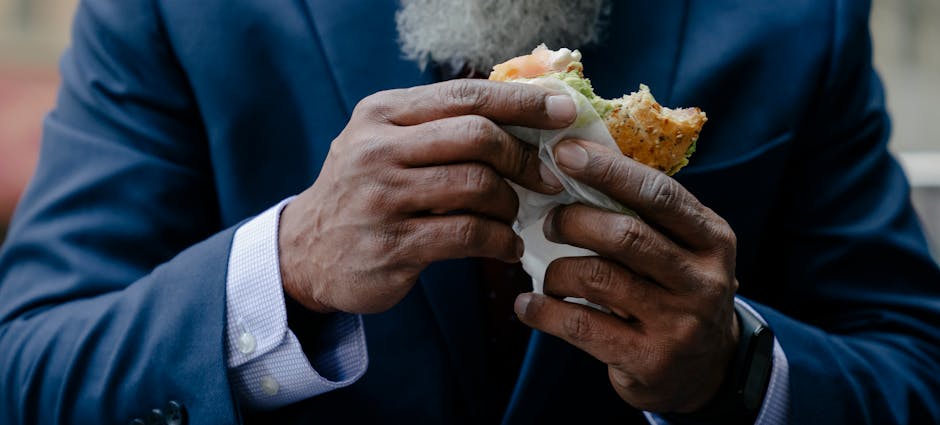Build a Balanced Snack
Smart snacking starts with the right balance of nutrients. The goal is to combine protein, fiber, and healthy fats in one small, satisfying portion.
Why Balance Matters
- Helps keep you full longer
- Prevents sudden blood sugar spikes and crashes
- Supports steady energy throughout your day
Balanced Snack Ideas
- Greek yogurt with fresh berries and chia seeds
- Apple slices paired with almond butter
- Raw vegetables dipped in hummus
These combinations not only satisfy hunger but also contribute to your overall daily nutrition goals.
Portion Control Still Matters
Even healthy snacks can sabotage your goals if portions aren’t kept in check.
Common Pitfall
- Eating directly from the bag or container makes it easier to overconsume
Tips for Smarter Portions
- Pre-portion your snacks in advance
- Use small containers or snack-size bags to create visual boundaries
- Keep measuring cups or a food scale handy for accurate serving sizes
Controlled portions are a simple but powerful way to stay on track without feeling restricted.
Timing Is Key
When you snack is just as important as what you snack on.
Snack Timing Strategies
- Schedule snacks between meals to prevent overeating at mealtimes
- Snack around your workouts for better energy and recovery
Avoid This Habit
- Grazing all day can blur your body’s hunger cues and lead to unnecessary calorie intake
Aim to snack with purpose, not out of boredom or habit. Set clear windows in your day when it’s okay to grab something—and stick to them.
Snacking gets a bad rap, mostly because it’s often linked to mindless eating. Think late-night chips, stress-fueled candy raids, or grazing on whatever’s around without paying attention. The image of snacking tends to come loaded with guilt and the idea that it’s the enemy of healthy eating.
But there’s a difference between empty habits and smart strategy. Mindless munching usually happens when you’re distracted, under-fueled, or just bored. Intentional fueling, on the other hand, means reaching for something with a purpose—protein before a workout, a fiber-rich bite to keep you going until dinner, or a small carb hit to boost focus.
Done right, snacking can actually work in your favor. It can keep energy steady through the day, support metabolism, and even prevent overeating during main meals. The key is not just what you snack on, but why. Planning small, thoughtful snacks is less about restriction and more about control—and that’s a game-changer.
Keeping your blood sugar stable throughout the day isn’t just about avoiding energy crashes. It directly impacts cravings, focus and how your body uses fuel. Vloggers and creators juggling odd hours and long edits often overlook this.
A stable blood sugar level means fewer dips that trigger late-night snacking or mid-day slumps. It makes staying sharp less of a mental battle. You avoid the boom and bust cycle that kills productivity.
It also supports muscle maintenance. When your nutrition is steady, your body holds onto lean mass better, which matters whether you’re active on camera or behind it. And with more protein and balanced macros, you’re less likely to rely on caffeine or sugar for fake energy. This isn’t diet culture. It’s fuel strategy for stamina and focus that actually lasts.
Snacking can be a trap. One minute you’re reaching for a granola bar, the next you’re hungrier than before. That’s not a fluke. Many popular snacks spike your blood sugar fast and crash it even faster, leaving you ravenous and irritable.
If your go-to snacks come in crinkly plastic and stick to your fingers, it’s time to rethink. Processed, high-sugar options may be easy, but they don’t fuel you for long. They’re built for flavor, not fullness.
Another red flag: snacking just because you’re bored. That kind of eating has nothing to do with hunger and everything to do with distraction. When that becomes a pattern, your body stops sending honest hunger signals—and you stop listening.
Then comes the meal-skipping. You think grabbing snacks throughout the day makes up for lunch, but it doesn’t. Small bites build up fast, usually with fewer nutrients and more regret. If you’re using snacks to replace meals, you’re probably over-snacking to fill in the gaps—and not very well.
When it comes to snacks, whole foods beat packaged ones almost every time. An apple or a handful of nuts doesn’t need a label. It’s simple, clean, and your body knows what to do with it. Packaged snacks, on the other hand, require more scrutiny.
Start by watching for added sugars, sodium, and a bunch of ingredients you can’t pronounce. If the label reads like a science experiment, skip it. The fewer ingredients, the better. That’s not just a rule—it’s a survival tip.
If you are buying packaged snacks, keep it tight: look for items with minimal ingredients, some actual fiber or protein, and low amounts of added sugar. You’re not just trying to stay full. You’re trying to avoid the crash-and-burn.
Want to sharpen your label-checking skills? Dig into our guide: Reading Nutrition Labels: What You Need to Know.
Quick fuel matters when you’re juggling uploads, edits, comments, and analytics. Skip the sugar crash and go for snacks that keep your head clear and energy steady. A handful of almonds and a piece of fruit? Classic combo with fats and fiber that keep you sharp. Low-sugar protein bars are great when you’re on the move and can’t deal with crumbs. Hard-boiled eggs with cherry tomatoes bring protein and a clean crunch. Rice cakes with avocado are simple, satisfying, and don’t weigh you down. And if you need a hit of protein with a little sweetness, cottage cheese with pineapple gets it done. No fluff. Just fuel that works.
Snacking isn’t the enemy. Restriction is. It’s not about cutting out everything between meals, it’s about making it count. Ask yourself why you’re reaching for something—not just what it is. Stress? Boredom? Mindless habit? When you know the trigger, you can manage the choice.
Perfect eating habits aren’t the goal. Consistent ones are.
Prep your environment before it trips you up. Keep things handy that actually support your energy, not drain it. We’re not aiming for clean-eating sainthood. Just smarter signals to your body and brain.
Snacking won’t wreck your progress. Unconscious snacking might. Lock into your patterns, build small routines around better fuel, and you’ll stay on course—even on busy days.

